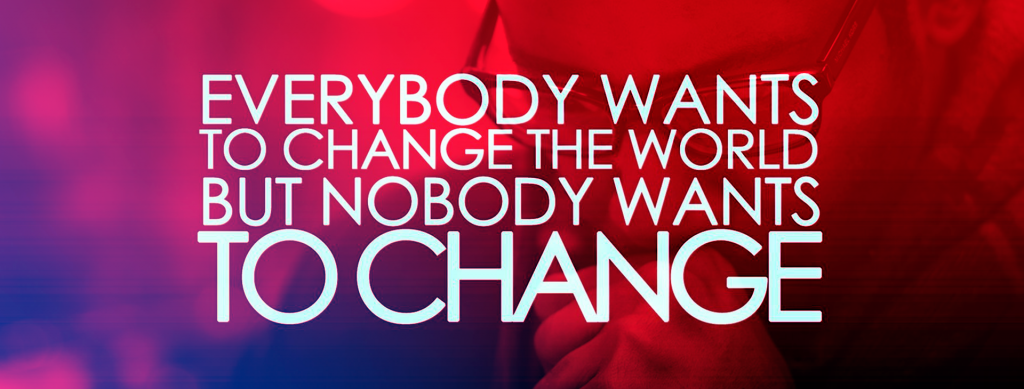Things to Know Before Hiring a Life Coach
What is life coaching? It is a future-based client-oriented approach aimed at guiding clients to focus on their strengths in order to achieve a desired goal rather than on their “weak” points. As the name implies, life coaching sessions takes a whole-person context by attending to a clients’ private and professional well-being into consideration.
Life Coaching is a process employed by Life Coaches to move their clients from where they are to where they want to be either in their personal or professional lives through the use of powerful thought-provoking questions among other techniques. It is a motivating, inspiring, positive, and action-driven collaboration and is a very effective way of promoting change in individuals; it puts you in control of your life by bringing out the best and unexplored traits in you; it is an equal partner relationship based on mutual trust between the coach and the client.
The coach guarantees confidentiality and is guided by ethics and code of conduct. The collaboration begins with client’s decision to seek a coach and be coached which means that they have the desire to change.
Life coaching does not believe in success or failures. It’s a question of appreciation. What you consider your weak point might turn out to be your most precious trait. Life coaching assist clients to set their priorities right. For example I once had an unemployed client who was desperate to get a job. On our first session, after she had enunciated her situation and goals, it was clear to me that her goal wasn’t the issue. I informed her of my observation but she remained adamant on her goal. After 3 sessions, she realised I was right because she got her dream job but it didn’t bring her the joy and relief she had expected. Ordinarily, one would think that our collaboration failed BUT NO; it opened her eyes to her real problems which she tackled head on in order to move on. So like we say in coaching, it’s not always about getting the desired result but rather about discovering the REAL obstacles to your progress and helping you tackle it to guarantee your happiness and fulfilment. A coach is able to regulate his/her strong emotions that sometimes come up during the sessions, and help the client to do the same. Personal or Life Coaching may be a life-changing experience. It has the potential to transform your life”.

Here’s an article by my tutor Dr Marina Makous, to enable you appreciate the power of Coaching: “Life Coaching is an experience that can help individuals achieve their goals and shape a better future for themselves. It is not therapy or counseling.
- What would you be doing with your life if you were not afraid to fail?
- What would you be doing if you knew you only had 1 year to live?
- On a scale of 0-10, how close is your life today to the life you want to live?
Some of you may have answered these questions easily, while others had trouble coming up with an answer on the spot. In either case, these are the kinds of questions that a client would look at and dig into with the help of a life coach.
[notice]Life Coaching is a professional relationship where an individual is engaged in the process of self-discovery, setting goals and taking steps to a richer, happier and more fulfilling life.[/notice]
Let’s look at each word separately:
Professional relationship means a confidential relationship with a trained coach. The interaction with the client provides a sacred space for a client to unfold, to look within herself for answers. The coach provides insightful questions and listens for the true voice without judgment or advice giving.
Why no advice giving?
Because when we give advice, we insinuate: “I know better than you.” How many times a day do you hear advice from others? How often do you choose to take it? How does it feel when you are talking to someone, a friend, a relative, your family, and instead of giving you space to carefully unfold your thoughts, examine them with a patient and respectful listener, come to your own conclusions, and being able to look at different options that you see, you get a reflexive and quick “advice”? In coaching, there is a conviction that advice-giving takes the power away from the individual and reduces the motivation to solve problems and move forward.
For example, let’s say your cousin tells you she wants to lose weight, suppose she says, 5 kg. What is she likely to hear from friends and family? “Oh, you ought to go on a diet: eat cabbage soup and go to the gym. “Do you think she has not thought of that? What is stopping her? The coach would take a different approach: she would ask about the motives for this decision; what does a person really want for herself, where does she run into difficulties: is it the type of food she chooses? The portion or size? Are certain situations worse than others? Is it lack of exercise/not enough exercise? Maybe the person has a painful knee condition, and needs to find an acceptable alternative to the gym? What are the obstacles?
A life coach looks with the person at the “energy drainers”: things that hang over us that we know we need to do or give up, to free ourselves to do things that we want to do. As you see in this simple example, a coach takes a “problem-solving “approach, where the client is supported in figuring out what she wants, what obstacles may come up, how to overcome those obstacles, and breaks down the goal into tiny manageable steps, something she can start doing right away. The coach and the client co-create an agenda for the week, and the client implements it, while the coach holds the client accountable. Remember, the client created the agenda, with the coach supporting and validating the client, verifying whether the plan is doable, reasonable and consistent with the client’s values and lifestyle.
In coaching, the client is the expert on his/her own life, engaged in the process of self-discovery. Here the goal is to allow the client to hear his/her authentic voice, his/her heart’s desires, without others imposing judgments or criticisms. So many of us have been conditioned to please others, take care of others, placing the needs of others above our own at all times. Looking back at a life lived in that way, often there is a sense of loss, a sense of not attending to your own need for creativity, satisfaction, learning, growth as an individual. We know that others cannot make us happy; we are responsible for our own happiness. When we take responsibility for our own happiness, thoughts and actions, we feel the power to change our life.
Now to the “more fulfilling life”: someone may define “happiness” as “living one’s own values”, when your actions are aligned closely to your personal values. Many people do not know what their values are, so how could they live their values? Through thought-provoking questions, mental imagery and evaluation, the coach can help the client to figure out the client’s values, and help create a life that is aligned closer with what the client wants for him/herself. In coaching we look at various components of a person’s life (the Wheel of Life), and have the client evaluate where she is at the present. Then we coach to “the gap” between what is now, and what the client wants.
Coaching is not a substitute for counseling. It is different, because counseling aims to resolve wounds from the past and heal trauma, and help the person understand why they have been feeling and behaving a certain way, and that healing and self-knowledge allows movement forward. Coaching works well for well-adjusted individuals who want to achieve more, for those who are not held back by past traumas. Often coaching is a natural extension of counseling, the next step after attending to the past and the present, an orientation to the future and its possibilities.
Now let’s look at the individual who employs a coach. It is well suited to well-functioning individuals who want to take their life to a higher, more productive level, and to live their life closer aligned to their inner values.
Finally, let’s examine the Life Coach, what kind of person can do this work? A person trained to really listen, to ask thought-provoking, insightful questions, to observe the client’s emotional reactions to what he/she is saying and thinking and point them out. A good coach has emotional maturity and training, respect for others, an open mind, as well as a commitment to confidentiality and high ethical standards.
